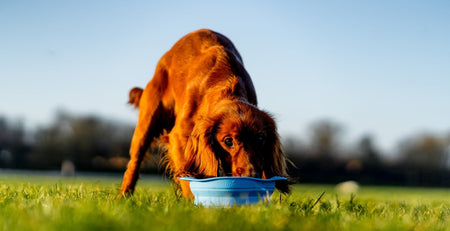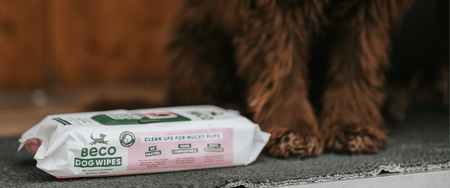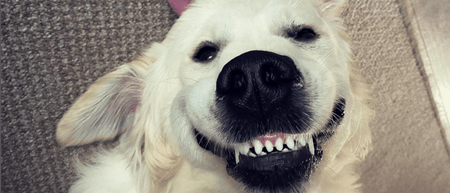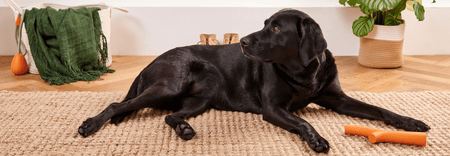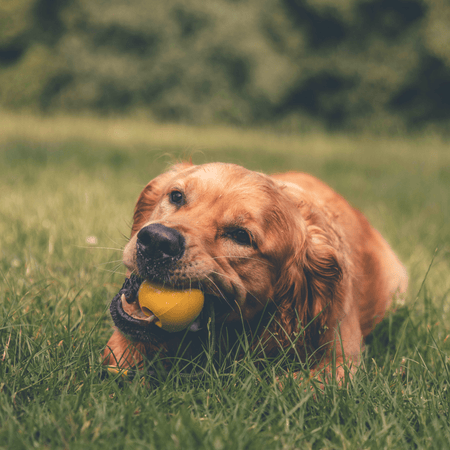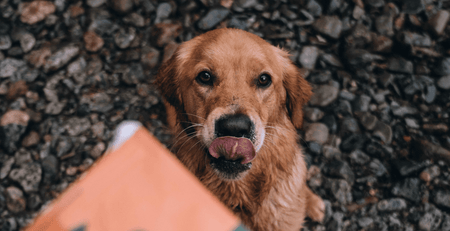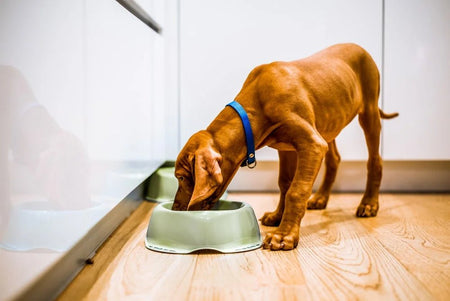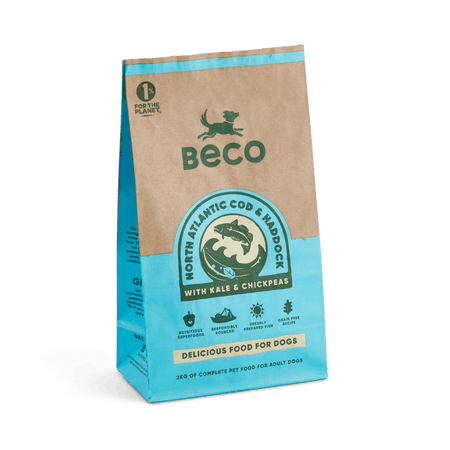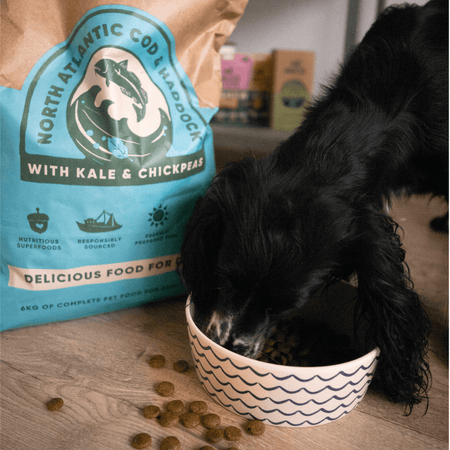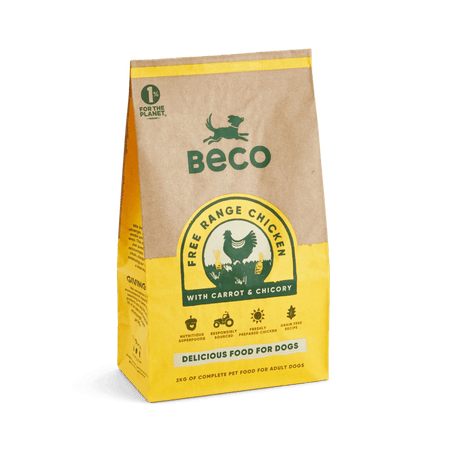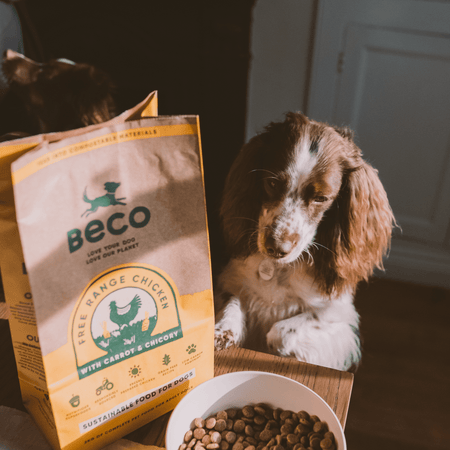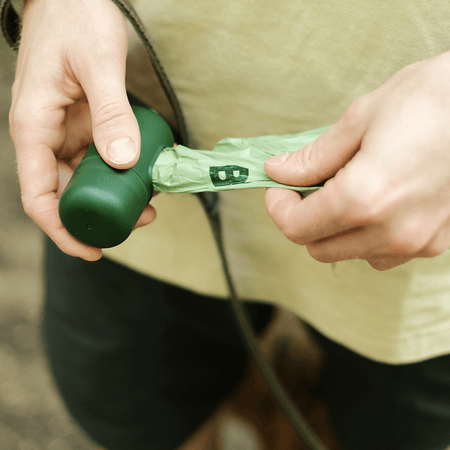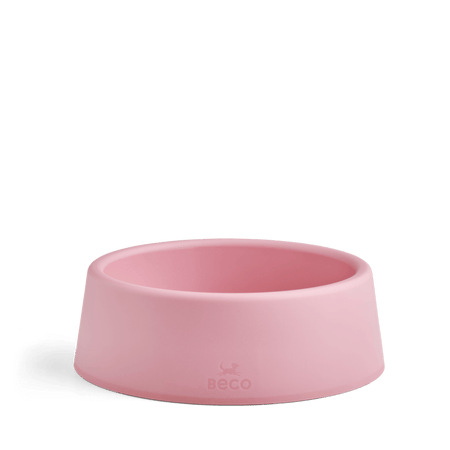Your beloved senior pup can't tell you exactly how they're feeling. Those greying whiskers and slower steps might worry you but don't panic.
Here’s some expert guidance and the definitive signs your senior dog is healthy, giving you peace of mind and the tools to support your faithful companion through their golden years.
Find out what’s normal and what’s not and how to support your pup in their twilight years.
- Senior dogs could hide symptoms of discomfort and small changes in behaviour may signal bigger issues.
- Adjusting exercise, diet, and comfort can drastically improve your ageing dog’s quality of life.
- Subtle sensory changes like vision or hearing loss need simple adjustments to maintain your pup’s confidence.
Is Your Senior Dog Is Healthy? Good Signs
As your dog enters their golden years, their care and well-being take centre stage. But how do you know if your old dog is healthy?
Recognising the signs your senior dog is healthy helps you maintain their quality of life, avoid potential senior dog issues, and celebrate their golden years.
Here's how to tell if your best friend is thriving:
1. Consistent Appetite and Weight
Healthy senior dogs maintain a steady appetite and body weight. If your pup's food bowl is regularly emptied with enthusiasm, this is a great sign.
Unexplained weight loss or gain, however, might hint at senior dog health problems like thyroid issues or diabetes.
Monitor their feeding habits and weigh them monthly at home or during vet visits.
If your senior dog stays restful after dinner without waking up hungry, this reinforces their health. A lack of nighttime hunger is one of the less obvious signs your senior dog is healthy at night.
2. Active and Alert During the Day
While senior dogs tend to slow down, they should still enjoy walks and playtime in moderation.
If your dog shows interest in daily activities, it’s a positive indicator.
Reduced activity might be expected, but sudden lethargy can signal ageing dogs' symptoms such as arthritis or heart conditions.
3. Clear Eyes and Ears
Bright, clear eyes and clean ears are signs your dog is in good health.
If you notice cloudiness, redness, or discharge, these could be signs of failing health in older dogs.
Hearing should remain functional. Loss might occur with age, but sudden deafness calls for a check-up.
4. A Healthy Coat and Skin
A shiny coat free from mats, flakes, or lumps is a hallmark of good health.
Regular grooming helps spot skin irritations or abnormal growths. If your dog scratches excessively or develops bald spots, that could be a sign of allergies or other senior dog issues.
5. Good Dental Hygiene
Strong teeth and healthy gums are a good indicator that your pup is in tip-top shape.
Bad breath and swollen gums could lead to complications like kidney or heart disease. Regular brushing or dental chews help keep your dog's mouth fresh and in top condition.
6. Positive Social Behaviour
Even as dogs age, they should remain friendly and engaged. Withdrawn behaviour might indicate pain or cognitive decline.
Social dogs wag tails at familiar faces and respond to cues and these are important behaviours to watch for.
7. Regular Bowel Movements and Bladder Control
Consistent bathroom habits show that your senior dog's digestive system is functioning well.
Diarrhoea, constipation, or incontinence can point to underlying issues, from infections to bladder stones.
What to Expect with an Aging Dog
Senior dogs may slow down, but ageing doesn’t mean declining health. Knowing how to check a senior dog's health regularly ensures you can address changes proactively.
Look out for the following:
Gradual Stiffness in Joints
As dogs age, their joints naturally lose flexibility, making movements like jumping or climbing stairs more challenging.
You might notice your senior dog hesitating before getting up or lying down or taking shorter strides during walks.
To support your pup, incorporate joint-friendly supplements like glucosamine and keep their exercise routine is gentle but consistent. An orthopaedic bed can also help them rest comfortably.
Increased Time Spent Resting
Senior dogs often spend more time snoozing, which is normal as their energy levels decrease with age.
But if your pup seems unusually lethargic or uninterested in activities they once enjoyed, it could signal underlying senior dog health problems, such as heart disease or hypothyroidism.
Monitor their rest patterns and encourage light activity to maintain muscle tone and mental stimulation.
Subtle Changes in Eyesight and Hearing
Cloudy eyes or a delayed response to sounds may suggest your senior dog’s senses are fading.
While mild vision and hearing loss are common with ageing, sudden changes could indicate cataracts, glaucoma, or ear infections.
Signs include bumping into furniture or not responding to their name. Regular vet checks can detect and address these issues early.
How To Tell If Your Old Dog Is Healthy?
Here’s a handy table to summarise:
| Health Aspect | Healthy Sign | Concerning Sign |
|---|---|---|
| Appetite & Weight | Consistent | Sudden loss/gain |
| Activity Levels | Active & playful | Lethargic, unwilling to move |
| Eyes & Ears | Clear, responsive | Cloudy, discharge, unresponsive |
| Coat & Skin | Shiny, lump-free | Bald patches, constant scratching |
| Dental Health | Clean teeth, fresh breath | Swollen gums, bad odour |
| Bathroom Habits | Regular, no accidents | Diarrhoea, incontinence |
| Behaviour | Social, engaging | Withdrawn, aggressive |
When Should I Worry About My Senior Dog?
You should act if your senior dog displays any of the following:
-
Rapid weight changes.
-
Reluctance to drink or eat.
-
Persistent coughing or laboured breathing.
-
Increased confusion or disorientation.
-
Difficulty standing, walking, or lying down.
These signs of failing health in older dogs shouldn’t be ignored. Timely intervention could prevent further complications.
Practical Tips to Support Senior Dog Health
Follow these practical tips to keep your pup happy and comfortable in their twilight years:
Nutrition
Feeding your senior dog a balanced diet is one of the most impactful ways to keep them healthy. Look for food enriched with omega-3 fatty acids to reduce inflammation and support joint health.
High-fibre ingredients help maintain digestive health, while lower calorie counts prevent weight gain as activity levels decline.
Always consult your vet before making significant dietary changes to ensure their meals meet their unique needs.
Exercise
Your old dog still needs exercise but this should be adjusted to their changing energy levels. Try short, frequent walks or low-impact exercises like swimming to protect their joints while keeping them active.
Following a routine like this strengthens their muscles and supports mental health.
Vet Visits
Take your older pup for regular check-ups. A twice-yearly visit allows your vet to monitor key areas like weight, joint function, and organ health.
Catching conditions like arthritis or kidney disease early makes a big difference in your dog’s quality of life. Preventative care is your best defence against more serious senior dog issues.
Comfort
Give your old guy or girl a comfortable environment that supports their ageing body.
Orthopaedic beds offer joint support while ramps make it easier for them to access favourite spots without jumping.
Frequently Asked Questions
How can I tell if my old dog is healthy?
Their interest in play, steady appetite, and clean ears/eyes are top indicators. Regular vet checks help you confirm their well-being.
When should I worry about my senior dog?
If they seem disoriented, refuse food, or show any sudden behavioural or physical changes, contact your vet immediately.
How do you check a senior dog's health?
Observe them daily for changes in energy, appetite, and appearance. Routine vet visits are key for detecting less visible issues.
Conclusion
Your senior dog's health is a journey of love and care. Track those good health signs, like sparkling eyes, enthusiastic tail wags and a consistent appetite.
Stay alert and stay proactive with regular vet check-ups, tailored exercise and sharp observation. Every moment matters, every small change counts.
Want to keep that senior pup thriving? Explore our range of food that nourishes body and mind. From nutrient-rich kibble to specially formulated wet food, we've got nutrition that'll keep your old friend healthy and happy.
Keep them eating well, keep them feeling well. Shop now and turn these golden years into pure golden moments.


